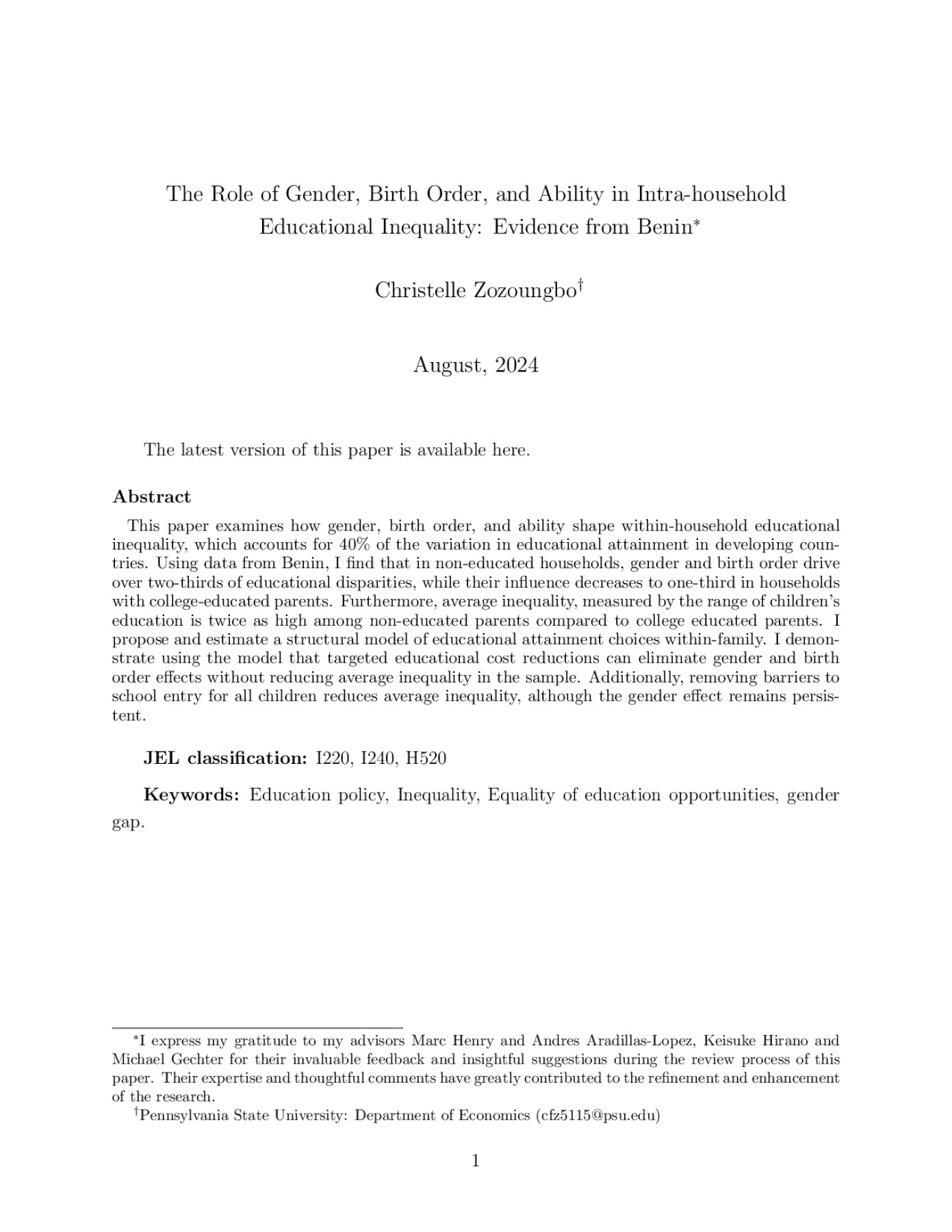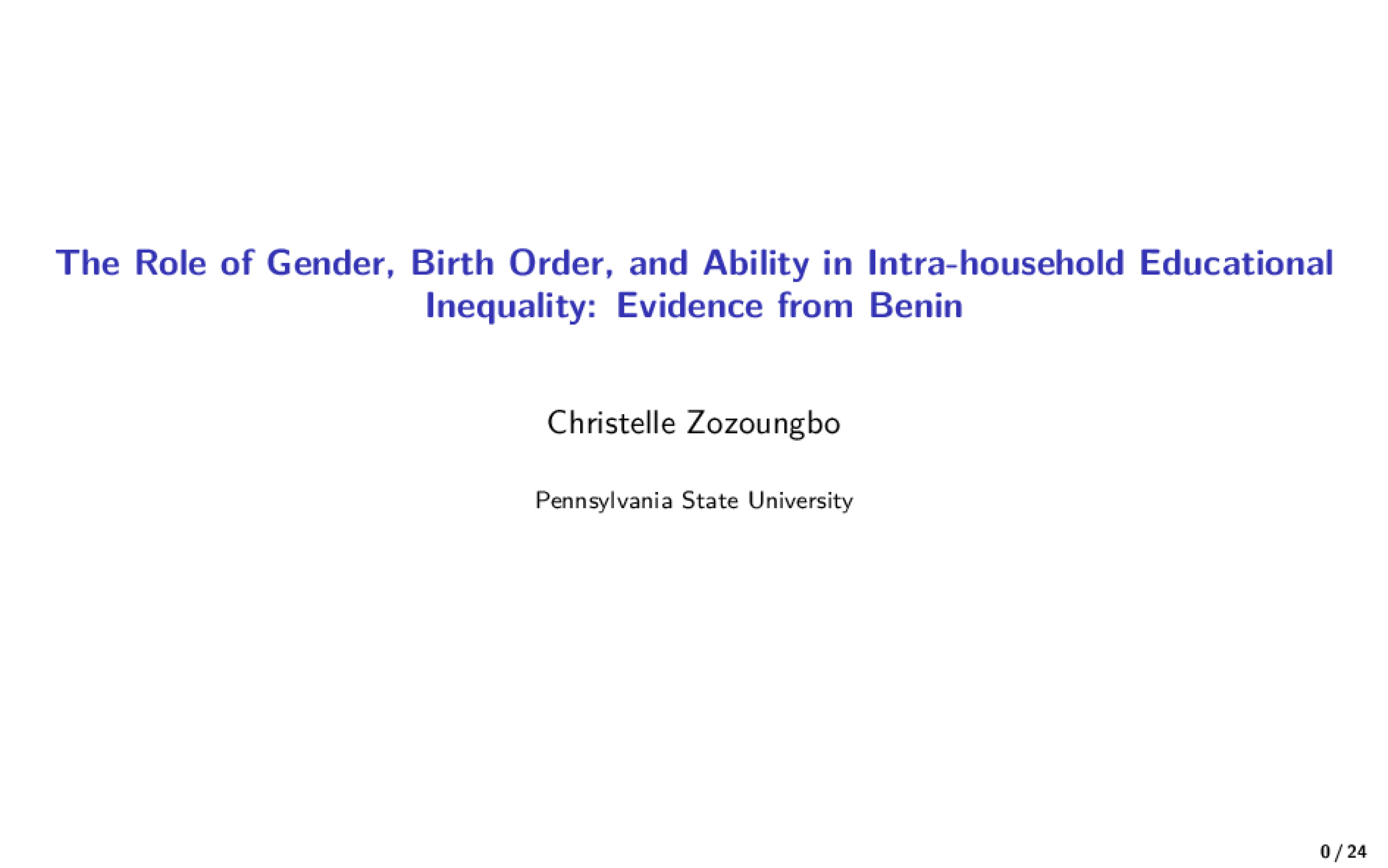2024 African Meeting, Abidjan, Côte d'Ivoire : June, 2024
The Role of Gender, Birth Order, and Ability in Intra-household Educational Inequality: Evidence from Benin
Christelle Zozoungbo
Lack of education is a significant obstacle to development in Sub-Saharan Africa, where high illiteracy rates, educational inequality, and a large number of out-of-school children persist despite ongoing reforms. An important, but often overlooked, contributing factor to educational disparities is inequality within families, which accounts for approximately 40% of the variation in educational attainment in developing countries. While educational inequality is increasingly studied, the findings are fragmented and lack integrated analysis. I fill this gap by comprehensively examining how gender, birth order, and innate ability interact to shape educational disparities within households. This paper is the first to model and estimate how parents distribute human capital resources based on these factors. Through a reduced form analysis, I establish two key findings about intra-household educational inequality in Benin. First, the relationship between the mean and variance of education at the household level follows a non-linear, hump-shaped pattern. Second, I decompose educational inequality into gender, birth order, and unobserved residual effects, finding that among households with non-educated heads and one child of each gender, over two-thirds of the average inequality is due to gender and birth order, while among college-educated parents, only one-third is due to these factors. I propose and estimate a structural model of household educational resource allocation. I use the model framework to analyze diverse counterfactual situations. These analyses suggest that removing extensive margin barriers to education lowers average inequality in the sample without reducing the share of gender effect, while targeted cost reduction eliminates the shares of gender and birth order effects without reducing average inequality. This research highlights the complex drivers of educational inequalities and proposes effective policy measures.
Preview










































































































